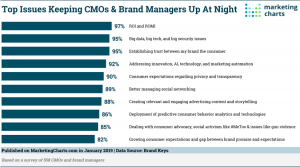— October 27, 2017

rawpixel / Pixabay
Despite Silicon Valley in San Francisco being renowned across the globe as the place to be for a career in digital, a recent global study shows Silicon Valley as ranking way down at number 15.
One of the reasons for this surprising result is the need for a work/life balance. ‘Happiness’ was one of the factors that was looked at during the study, alongside the type of lifestyle workers can expect in the area in which they choose to live and work.
It costs a considerable £2,528 per month on average for food and rent in San Francisco, which is difficult to afford for those eager and enthusiastic graduates coming to the city to share their new ideas. When staff are struggling to afford to live it makes a substantial impact on their happiness and productivity.
Finding talent is often a challenge for SMEs anyway; if SMEs start concentrating on creating a more attractive workplace culture, the work / life balance can help attract the right talent to help push on the company’s development. Investing in staff is the secret ingredient to grow a business.
The Harvard Business Review reported that taking holiday can actually increase the likelihood of getting a raise or a promotion and a study by the University of Warwick found that happy employees are around 12% more productive. Treating employees well has become the catalyst for success and SMEs need to tap into this.
Amsterdam consistently ranks as one of the happiest countries in the world and recent statistics have pointed to their work structure as the source. In the global survey, Amsterdam ranks the highest for happiness and simultaneously comes out as the best place in Europe to start a tech career at number 2 on the global ranking.
26.8% of Dutch men and 76.6% of women of working age spend less than 36 hours a week working, enabling them to be more productive at work in the hours they have in the office, potentially resulting in a healthier work/life balance with more time to exercise and spend time outdoors and with their family.
We can conclude from all these statistics that the culture within your business has a definite impact on performance. SMEs often have limited marketing budgets which they spend on external branding, yet internal branding is vitally important too and vastly overlooked.
It is vital for SMEs to improve employee engagement as staff who are happier are often more dedicated. Another benefit is lower employee turnover, which will save you time and money in recruitment.
SMEs need to:
- Invest in their internal brand
- Encourage professional growth
- Meet staff personal needs
- Develop mindful managers
- Strive to find the right people who will fit in
To connect with your staff in a manner that builds trust and enables them to add unique and as yet untapped value you should:
- Address what your staff need
- Consider what they value
- Cater for generational differences
- Provide opportunities for success
You can do this by:
- Holding social activities
- Providing company perks
- Rewarding success
- Encouraging open communication
- Keeping work to the office and away from the home
- Offering staff training
- Introducing health and well-being plans
- Encouraging staff to use their holiday entitlement
- Encouraging humour, fun and creativity
- Offering flexible working hours
Positive culture starts from the top. We know that encouraging people’s potential and contribution is key to business success – essential to attract, engage, motivate, inspire and retain talent, thereby increasing productivity and sales.
Business & Finance Articles on Business 2 Community
(33)





